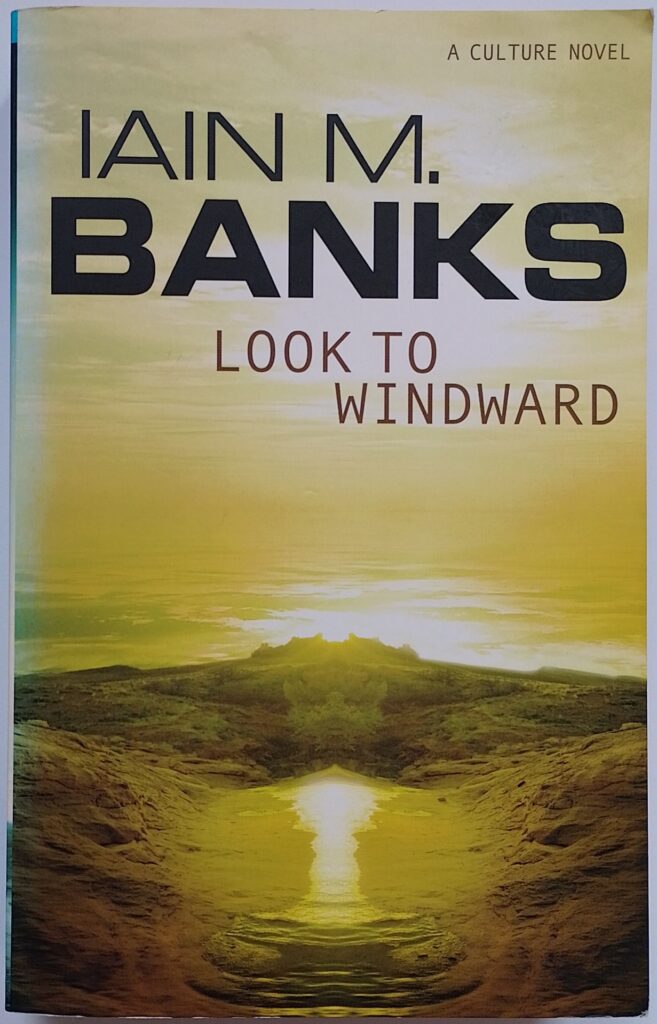First published 2000. Orbit paperback, 2007, pp 403, c.130,000 words.
This is a fantasy novel set in Banks’ ‘Culture’, a far-future where humans have spread out across a portion of the galaxy and live lives free of the need to work for a living. They inhabit artificial structures called Orbitals which provide all the inhabitants’ needs and are managed by a form of manmade super intelligence.
Humankind has long since ceased to be expansionary, but has to deal with neighbouring species both less and more powerful than they. They also have to deal with their aggressive past, so this is a metaphor for a post-colonial world. The sybaritic life of humans in the orbital are threatened in this story by their past intervention in a less advanced species political affairs, when they had tried to overturn a rigid and oppressive class-based order with unforeseen consequences. Shades of Western interventions in Afghanistan and Iraq come to mind.
Banks is a first-rate literary writer and he brings that skill to his fantasy novels. Sometimes it can seem a little forced. The word ‘sough’ is not one in everyday use in Britain and to use it twice in a fantasy novel smacks of pretentiousness.
Banks is a master at creating strange worlds with fantastic creatures that somehow seem plausible: the Behemothaurs are a fine example. He has a tendency to veer into some quite nasty horror at a few points, but I wasn’t so put off by these elements in this book as I was by his Consider Phlebas (title also taken from T.S. Eliot’s Four Quartets. Pretentious, moi?) His Orbitals and the human Culture are a well thought through commentary on Western Liberalism, with all its attractions and faults.
The story maintains its interest, even if one or two of the worlds seem to have been shoe-horned in because Banks liked them so much, rather than their adding to the narrative drive: those Behemothaurs again. The characters are diverse, well drawn and relatively free from cliché. Some conversations between different species seem more like those between educated Europeans, say, with slightly different historical perspectives, but broadly convergent views on right and wrong.
© William John Graham, May 2022

